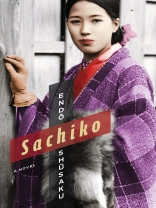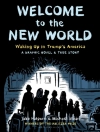In novels such as Silence, Endō Shūsaku examined the persecution of Japanese Christians in different historical eras. Sachiko, set in Nagasaki in the painful years between 1930 and 1945, is the story of two young people trying to find love during yet another period in which Japanese Christians were accused of disloyalty to their country.
In the 1930s, two young Japanese Christians, Sachiko and Shūhei, are free to play with American children in their neighborhood. But life becomes increasingly difficult for them and other Christians after Japan launches wars of aggression. Meanwhile, a Polish Franciscan priest and former missionary in Nagasaki, Father Maximillian Kolbe, is arrested after returning to his homeland. Endō alternates scenes between Nagasaki—where the growing love between Sachiko and Shūhei is imperiled by mounting persecution—and Auschwitz, where the priest has been sent. Shūhei’s dilemma deepens when he faces conscription into the Japanese military, conflicting with the Christian belief that killing is a sin. With the A-bomb attack on Nagasaki looming in the distance, Endō depicts ordinary people trying to live lives of faith in a wartime situation that renders daily life increasingly unbearable. Endō’s compassion for his characters, reflecting their struggles to find and share love for others, makes Sachiko one of his most moving novels.
Inhoudsopgave
Translator’s Introduction
Acknowledgments
1. His Arrival
2. Sachiko
3. A Spy
4. A Minor Secret
5. Dark Surging Waves
6. The Place of Death
7. The Student Dormitory
8. A Conversation About Love
9. Anguish
10. Escape
11. Girlish Innocence
12. A Summer Ablaze
13. The Death of Kolbe
14. Step by Step
15. That Day
16. A Decision
17. As Though There Were No War
18. Letters from Shūhei
19. Dark Days
20. 1944
21. And Sachiko . . .
22. Requiem
23. August
24. Aftermath
Author’s Afterword
Appendix: Synopsis of Kiku’s Prayer
Over de auteur
Endō Shūsaku (1923–1996) studied French literature at the University of Lyon from 1950 to 1953. In 1995, Emperor Akihito of Japan presented him with the Order of Culture, the nation’s highest honor for contributions in literature, art, and culture. His publications include the internationally acclaimed novel Silence, The Sea and Poison, A Life of Jesus, Song of Sadness, and Kiku’s Prayer, as well as many other works dealing with childhood, the stigma of being an outsider, the experience of being a foreigner, and the difficulties of following a foreign faith.












